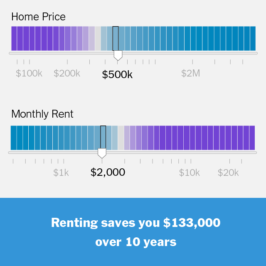These days, credit cards are almost indispensable, providing convenience and financial flexibility. But while using credit cards for everyday purchases is becoming more common, it’s also not unusual to face financial challenges that can lead to missed payments. Should the challenges and missed payments continue longer term, the credit card debt could ultimately be written off, which is when a creditor considers it uncollectible and no longer counts it as an asset — typically after 180 days of non-payment.
For cardholders, the situation can feel confusing. On one hand, the debt is technically still owed, yet it’s considered “written off” by the creditor. When this happens, though, the credit card debt doesn’t just disappear. While creditors write off debt as a loss on their balance sheets, they typically don’t forgive it. The debt remains yours to pay, and it will likely be sold to a collection agency, which can lead to further damage to your credit score.
Because of the negative impact a written-off debt can have, you may wonder whether you should take steps to resolve it. So, should you pay credit card debt that has been written off? Below, we’ll break down what to know.
Paying off written-off debt may seem counterintuitive, especially when it’s no longer considered an asset by the creditor. However, addressing this debt proactively can offer both short-term and long-term benefits, such as improving your creditworthiness and reducing your financial liabilities.
So, if you’re considering paying off a credit card debt that has been written off, it’s important to weigh the potential benefits against the impact on your finances. Written-off debt still affects your credit report and can appear as a negative mark for up to seven years, which lowers your credit score and makes it harder to qualify for favorable credit terms. Paying it off won’t erase this history, but it will change the debt’s status to “paid” or “settled,” which is generally seen more favorably than leaving it unpaid.
Another reason to consider paying written-off debt is to stop ongoing collection efforts. When creditors write off debt, they generally sell it to collection agencies that will then pursue payment. By paying the debt — either in full or through negotiation — you can eliminate further collection calls, letters and potential legal action. Plus, clearing old debt can make it easier to move forward without these financial obligations hanging over you.
That said, every state has a statute of limitations for collecting old credit card debts. After this period, creditors or collection agencies cannot legally sue you to collect the debt, though they can still attempt to contact you. Understanding whether your debt is past the statute of limitations can help you make an informed decision about repayment.
Ultimately, if improving your credit or achieving financial peace of mind is a priority, paying or negotiating the debt can be a positive step. On the other hand, if the debt is close to the statute of limitations in your state, you may choose to wait, as creditors cannot legally sue you to collect the debt after this period.
How to tackle old credit card debt
Addressing old credit card debt that has been written off requires a strategic approach. Here are several options that can help you manage or reduce these debts effectively:
- Debt forgiveness: Debt forgiveness (or debt settlement) involves negotiating with your creditor or a collection agency to pay a portion of the debt in a lump sum, which the creditor agrees to accept as payment in full. This can be a cost-effective way to reduce what you owe.
- Debt consolidation: If you have multiple written-off debts, a debt consolidation loan might be worth considering. A debt consolidation loan combines several debts into one, often with a lower interest rate. And, many debt relief companies offer debt consolidation programs that can help lower monthly payments and simplify repayment.
- Credit counseling: Credit counseling agencies can help you understand your options and develop a budget that works for your financial situation. They may also help you enroll in a debt management plan, which could lower your interest rate or fees, making your debt more affordable.
- Bankruptcy: Although bankruptcy has long-term consequences on credit, it can offer a fresh start if you are overwhelmed by debt. Chapter 7 or Chapter 13 bankruptcy can discharge or restructure some credit card debt, including written-off debts.
The bottom line
Paying off written-off credit card debt can be beneficial, but it’s not the right choice for everyone or every situation. Each person’s financial situation is unique and it’s crucial to evaluate all available options before making a decision. Debt settlement, consolidation and credit counseling are all viable paths for those looking to manage their debt more effectively. So, if you’re unsure about the best course of action, weigh your options and consider what works best for your unique circumstances. That way, you can ensure that you’re taking steps that align with your financial goals.






